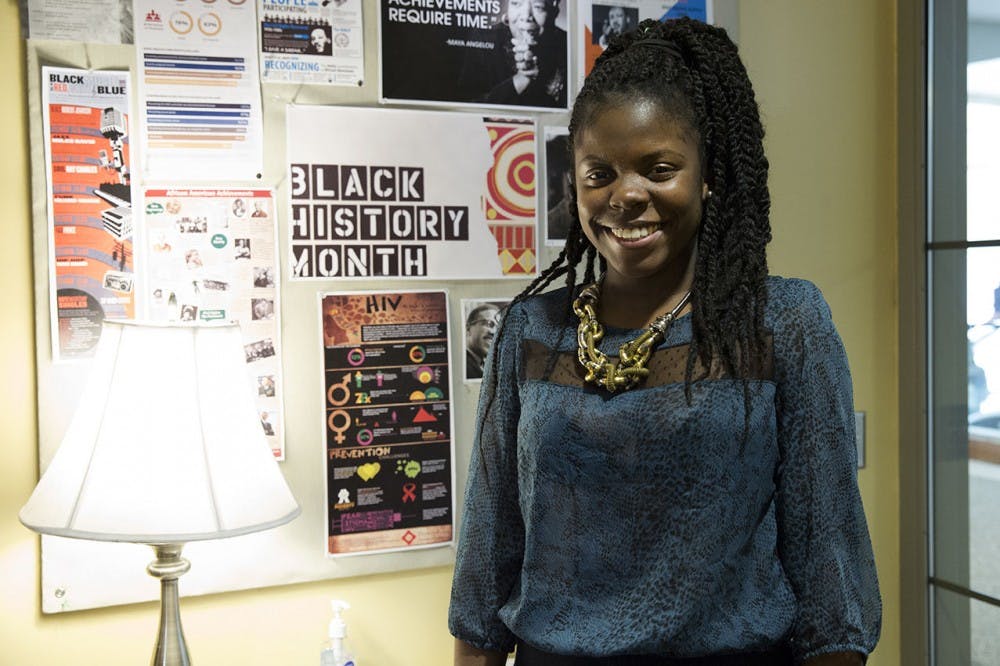Economic gap in household wealth between white and minority households has only increased since the Great Recession.
Households with white families are earning more than households who identify as minority — and at a greater difference compared to figures before the “Great Recession” in 2007.
Inequality of wealth in black and white families now sits at 12.9 percent, a more than 4 percent increase since 2007, according to the Pew Research Center.
For minority students, an education could mean the difference between keeping the generational status quo and breaking the cycle, said Cecil Walters, director for the Office for Multicultural Student Access and Retention.
“Whether you’re a minority Bobcat or majority Bobcat, earn your degree,” he said. “Correct the wrongs you see outside of your lived experience.”
Athens doesn’t keep information on households’ net worth, but statistics from Athens County Job and Family Services show families here have difficult living above the poverty line.
In Athens County, the use of food stamps among black and Hispanic residents has increased between 2010 and 2013, with an 8.3 percent increase for black residents and a 31 percent increase for Hispanic residents.
Use of food stamps is higher in the white community at 94.7 percent, but that has decreased since 2010 by 0.32 percent.
A black middle class has only recently been able to grow due to the Civil Rights Movement, Walters said.
“White families in this country have had more generations of building wealth, maintaining wealth, securing wealth than black households have,” he said.
Household wealth is defined as the assets belonging to a household, including income and items such as cars and houses, according to the United States Census Bureau.
In 2007, the median net worth of black households was $19,200, and has since fallen to $11,000 in 2013. Hispanic households had an average wealth of $23,600 in 2007 and $13,700 in 2013, according to the Pew Research Center.
The average wealth among white households in 2007 was $192,500 and $141,900 in 2013, according to the report.
Tyrin Rome, a junior studying in music production, said many people are unaware of generational wealth statistics, adding he only found out this year what wealth truly meant and how it worked in the U.S.
“I feel like I can be proactive in planning — how I can build my family up before I even have one,” Rome said. “People don’t know about bonds, stocks and figuring out ways to make money. People don’t know about investing in a house, building it up and selling it.”
Race has a significant impact on wealth, Walters said.
“You have to assume that everyone is on the same playing field and that’s not the case. The unemployment rate is about 5.6 percent, but among black households it’s about doubled,” Walters said. “That’s a common thread you’ll see whether you’re looking at it through the lens of wealth or the lens of unemployment.”
Minority students do have a more difficult time affording education, Shambrion Treadwell, a senior LINKS mentor studying theater performance, said.
“I feel like college, in a sense, cheats you, but then rewards you,” Treadwell said. “I do think money is a big issue, because even for the blacks here that have parents that make a lot, they couldn’t go to certain schools because it was still expensive.”
Treadwell said she wouldn’t be able to finance a university education without the scholarships she earned to attend OU.
“A stereotype that’s discouraging is just because you’re black you automatically get funding,” Treadwell said. “There are a lot of black students that didn’t get funding. I’ve applied for scholarships throughout my four years.”
Even though resources might be scarcer for minority students, they should still spend the money to pursue a degree for personal and societal growth, said Winsome Chunnu-Brayda, associate director of the Multicultural Center.
“One is educated in a broader sense outside of merely credential, but understanding one’s place in society and how to function within that society, I think, for me, is more important,” Chunnu-Brayda said.
@mini_fezz
mf736213@ohio.edu






